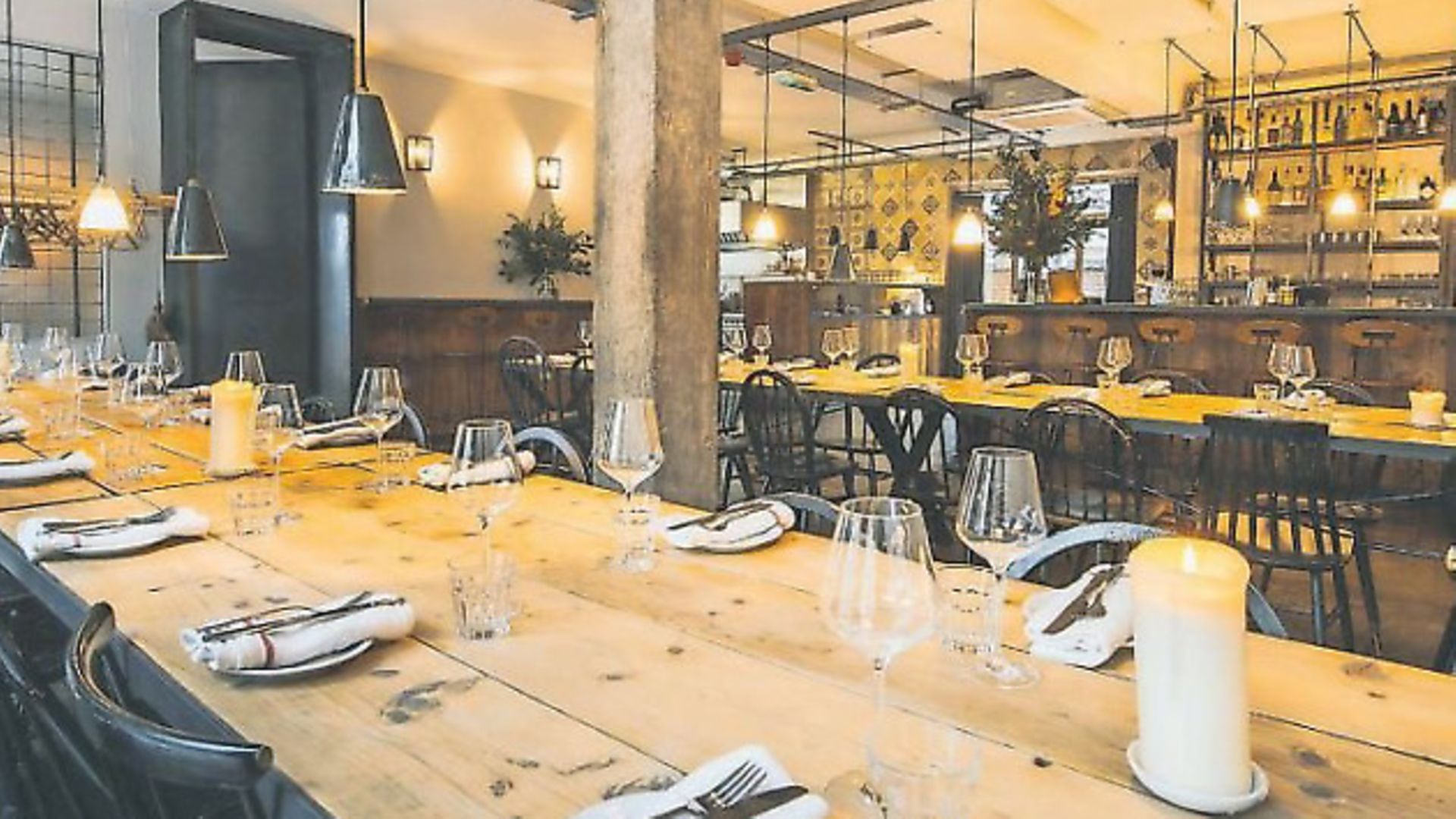
A series of Michelin-starred European chefs explore how the referendum vote has put Britain’s booming restaurant sector at risk
Choose a restaurant at random in any UK city and it’s likely somebody in the kitchen, or somebody taking your order, will be from outside the UK; 28 per cent of our country’s staff in the industry are foreign-born, according to figures from the Wall Street Journal. Many hail from Europe.
Really, it’s only recently that parts of the UK have become true destinations for gastronomic adventure. You would’ve been hard-pressed to find anything other than a good steak or a decent bowl of pasta in most large towns even as recently as the 1990s.
There’s a vibrancy to Britain’s restaurant scene these days. Food is high on people’s agendas. We’re in a cooking renaissance, tucking into a plethora of talent, and plates of foraged Kent.
Part of our ascent to cuisine’s top table has been through foreign intervention. The likes of the Roux family, Raymond Blanc, and Pierre Koffman all helped steer the culinary ship towards more delicious seas. Today, chefs such as Paradise Garage’s Laoise Casey (Irish) and Morito’s Mariana Leivaditski (Cretian) keep mouths watering.
Of course, we have fine British-born chefs too; our kitchens haven’t solely relied on other nations schooling us on the virtues of consomme and anchovy paste. But we have vastly benefitted from ‘outsiders’. Diversity is buttery; it adds richness.
The thing is, if this nation of ours were a saucepan of cream, we would, indeed, be split. And some chefs are worried that Brexit is going to sour proceedings.
The Michelin-starred Swede, Mikael Jonsson, thinks so: ‘I am worried about Brexit, what it might do to our industry.
‘I don’t know if fine dining can cope with it, because it relies so heavily on labour from Europe. In Britain, traditionally, there’s no feeling of pride in front of house service. In France, Italy, it’s a career and success.
‘If you look at the industry, pretty much every restaurant has someone from overseas on the payroll, mainly from Europe. They’re reliable and trained.
‘I think our kitchens could get by, but front of house will really suffer – especially high-end. If I’m honest, I’m really f*****g scared I won’t get the staff. English people just don’t wait tables’.
Jonsson runs Hedone, one of London’s destination restaurants that, the chef tells me, can have a fully booked evening in which only around 20 per cent of customers are local – a reflection on the staff, then.
It’s true to say that while Brexit brings an ounce of melancholy, it also delivers a heavy pinch of tourism, which puts bums on seats and does spur the economy on.
But will that outshine staffing problems and potential complications importing the finest produce?
‘Britain has some of the best ingredients around’, Jonsson says. ‘But it’s not endless, and, for restaurants looking at cuisine such as French, or influenced from elsewhere, you need to utilise other parts of the world.
‘One of my best dishes recently is a pork neck from the French Pyrenees. You cannot get pork like it here. And the chicken in the UK – and Scandinavia – is absolutely s–t. It’s awful. Ask Rene Redzepi of Noma, he agrees.
‘And I don’t use Isle of Wight tomatoes. They’re tasteless compared to those from the Amalfi Coast (in Italy). I don’t know the details of Brexit, what will happen exactly, but if trade is more complicated and expensive, that’s no good for me’.
Jonsson makes a good point: we don’t know what will happen, precisely, to the trade of food and drink, or the particulars of restricting movement of workers. We’re in a period of flux.
Bruno Loubet, of Grain Store, tells me that around 90 per cent of his workforce are from outside the UK, many from Europe.
He laments the uncertainty: ‘Look, I don’t know the details of all this or the ins and outs of politics. We don’t truly know what will happen – it might work out okay.
‘I love London, its buzz, the fact that everyone wants to come and cook here and be a part of this. I hope that continues.
‘The Leave vote has, I suppose, dampened spirits a little. I think it’s a shame. We’ll see what happens’.
Another Michelin-starred Swedish chef, Niklas Ekstedt, was last year hoping to open a new restaurant in London, but was put off by Brexit. Perturbed by our nation’s curdled state, he’s now sticking to pop-ups, television appearances and book launches on our shores.
Before his scheduled appearance on Saturday Kitchen this weekend, Ekstedt, who owns the fiery, rustic and very Nordic restaurant of the same name in Stockholm, tells me: ‘I was hoping to open up here, but that’s now on hold, as we just don’t know what’s happening.
‘I love the (Britain’s) emphasis on foraging, the seafood, the eclectic mix of chefs working here. The agriculture here is incredible, and the focus on the sea is comparatively similar to Nordic cooking – there are lots of things the same.
‘I love how close we all are too. I can be in London in three hours, and it’s the same across Europe. I think that’s why we have an ongoing dialogue around food across boundaries, a share of knowledge and expertise, which only helps find new flavours and push chefs to explore new ideas.
‘But I don’t think I can commit to a project right now.
‘In Norway (not an EU member state) there aren’t many good Italian restaurants, for example, because buying in good tomatoes or cheeses is often too costly’.
(Aside, St John’s Trevor Gulliver tells me that JF Hillenbrand, a large international shipper, has already put up its prices significantly to UK customers. The French wine Gulliver buys for St John has risen.)
This week, Ekstedt has been cooking at London’s Carousel, a merry-go-round of flavour, where chefs host pop-up dining experiences harking back to their roots. It’s recently seen the likes of Portugal’s Leonardo Pereira, and Olia Hercules, of Ukrainian heritage, cook.
Carousel showcases much of what’s been said – it’s a platform for Europe’s flavour to be displayed and savoured. We’re a country where ethnicity is celebrated by many; hummus is as much a part of sentiments as pickled herring.
In testament to this promise, even Paris restaurant Frenchie opened up in Covent Garden.
Yet its head chef, Gregory Marchand, echoes his peers’ dismayed sentiments, telling me that ‘finding skilled hospitality industry people is already a challenge so I hope, naively or not, that the government will be sensible enough to protect an industry worth billions’.
Chef Amandine Chaignot, at the Rosewood Hotel, says much the same. She has ‘more than 20 different nationalities working for her’ and tells me that she finds it ‘so interesting to work with different cultures. It opens your eyes’.
I wonder why some of this country closed theirs.
Do you know what happens when you take your eye off the ball in the kitchen? You burn your custard.
—
Josh Barrie writes about food for, among others, Country & Town House, The Telegraph and The Guardian. Follow him on Twitter @joshbythesea
This article was originally published in The New European on 09 September 2016










